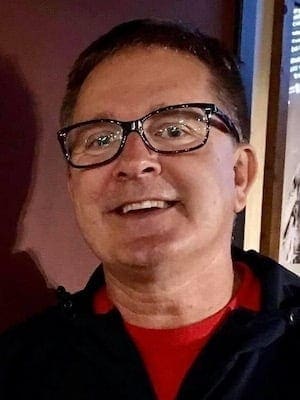Jesse Owens placed the notion of white supremacy under the worldwide microscope in the summer of 1936 by winning the gold medal in the 100-meter, 200-meter, 4×100-meter relay and long jump at the summer Olympics in Nazi Germany.
Franklin Delano Roosevelt was on his way to winning 60.8 percent of the popular vote and 523 to 8 in the Electoral College in his campaign to become re-elected to a second term as president of the United States.
People across America were clinging to life with grit and hope in the middle of the Great Depression.
James Agee and Walker Evans set out that summer as journalists to document the lives of people who were showing some of the truest grit and holding on with some of the deepest hope of all the people in the United States – sharecroppers in the south.
They lived with three sharecropping families for one month and then told their stories with words and photographs – stories about early mornings, late evenings, meals, work, illiteracy, houses, children, animals, endurance – human stories so that people could see the sharecroppers, know them, as sacred souls.
Their project began as journalism – the who, what, when, where, why and how of the sharecropper – but became poetry, a work of beauty, wonder and genius that opened eyes and ears to fellow human beings who were seldom seen or seldom heard in the wider world.
The American literary classic, “Let Us Now Praise Famous Men,” was born.
Over the past 10 years, I have set out to document the lives of another group of people who show true grit and deep hope – teachers.
I have worked each school day with the teachers at my Title I elementary school and want to tell their stories – stories about morning work, lunchrooms, recess, homework, afternoons, meetings, standardized tests – human stories, so people can see us, know us, as sacred souls too.
We are public school teachers.
That word “public” comes from the Latin word “publica” and means “of the people.”
Our students and their families are truly “of the people,” not just the people from our small corner of South Carolina but people of the whole, wide world. We are too. We are of the people for the people.
During the coming school year, we will teach our students reading, writing, math, science and social studies; we will try our best to help them meet the academic standards for their grade levels.
We will also try our best to take care of our students. Our work is as simple and as complex as that.
When we walk into our classrooms, we will see kids like Mary, whose skin is white, the color of a peach on a tree.
She attends our inner-city school, and not a school in the suburbs or a private school, because her dad is in jail and her family is just trying to keep food on their table, clothes on their bodies and a roof over their heads.
We will make sure she isn’t going hungry or homeless when she walks out of the doors of our classrooms.
We will see kids like Tomás, whose skin is brown, the color of the soil of Honduras.
His heart language is Spanish. He knows a few English words but looks at us like a little boy lost in the woods when we teach him at our normal pace.
We will take a lot of extra time with him to make sure he is learning all that he can learn and we will make sure he knows how much we love him and how glad we are that he is here.
We will see kids like Maleek, whose skin is ebony, the color of bark on trees.
He can solve algebra problems and read above grade level but is painfully shy and very quiet.
If we are not careful, we will stereotype him or overlook him and make him feel as if he does not matter. We will make sure we challenge him and help him share his gifts with our classrooms and with the world.
We will walk into our classrooms with the ABCs in our hands and in our hearts – authenticity, beauty and compassion – and become more human for our students, for each other and for the world.
We will walk into our classrooms and out into our communities to change the world. We will walk into our classrooms full of students and welcome those students to walk into the deepest parts of our lives.
We will walk into our classrooms and become famous, not in the modern sense of the word, fame built on wealth and status and commerciality, but in the sense of Agee and Evans, fame built on grit and hope, fame built on being sacred souls, fame built on being human.
As the new school year begins, let us now praise famous teachers.
Trevor Barton teaches fourth grade and is a member of First Baptist Church in Greenville, South Carolina. His writings can be found on his blog, and you can follow him on Twitter @teachandwrite.
Editor’s note: This article is part of a series focused on local schools and the faith community. Previous articles in the series are:
4 Ways Your Church Can Minister to Schools
How God Remains Fully at Work in Our Public Schools
Ministering to International Students – No Passport Needed
A fourth grade public school teacher and member of First Baptist Church in Greenville, South Carolina.

